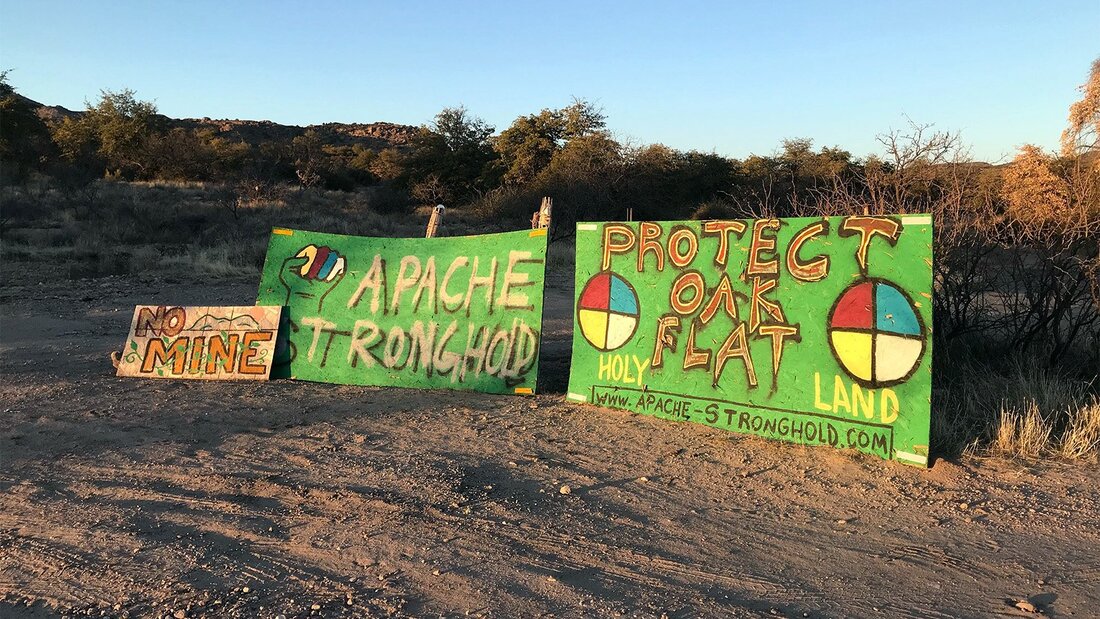|
The fate of lands central to the religion of the Apache is once again in grave doubt, as is the scope of the Religious Freedom Restoration Act, meant to protect the First Amendment right to freedom of worship. A public-private land swap approved by Congress in a midnight deal slipped into the Defense appropriations bill in 2014 allows a foreign mining consortium, Resolution Copper, to mine copper in the Tonto National Forest. The mine would seize land long held sacred by the Apache and transform it into a 2-mile-wide crater. The Apache won a conditional victory on Monday when the U.S. Department of Agriculture withdrew an environmental impact statement on the project. On that basis, on Friday the Ninth Circuit Court of Appeals denied the emergency request to stop the Forest Service from handing over the land. The appeal will continue on an expedited basis. “The transfer and destruction of an ancient Apache sacred site clearly violate federal law,” Luke Goodrich, vice president and senior counsel at religious liberty law firm Becket, told journalists. He noted that Oak Flat is central to the Apache religion. “If it is destroyed, there’s nowhere else for them to carry on their sacred tradition.” “The transfer and destruction of an ancient Apache sacred site clearly violate federal law,” says Becket’s Luke Goodrich. Oak Flat is central to the Apache religion. “If it is destroyed, there’s nowhere else for them to carry on their sacred tradition."
“I don’t see how the U.S. government can separate an Indigenous religion compared to Catholic or Mormon or Islam,” said Morgun Frejo, a Navajo who sees the mining of the land as akin to the Notre Dame Cathedral fire. “We all pray to a higher being.” Protect The 1st will remain on alert on ways to help Becket and other allies of the Apache in their appeal. Comments are closed.
|
Archives
June 2024
Categories
All
|
ABOUT |
ISSUES |
TAKE ACTION |



 RSS Feed
RSS Feed